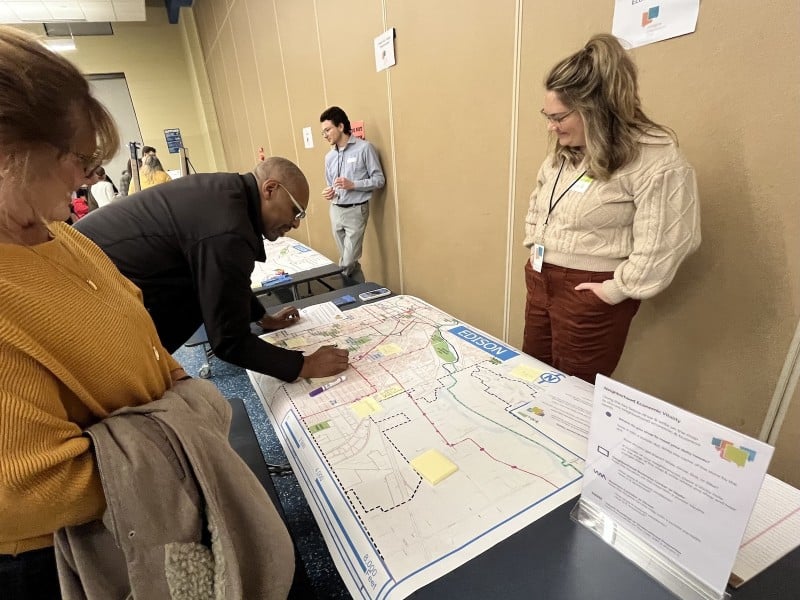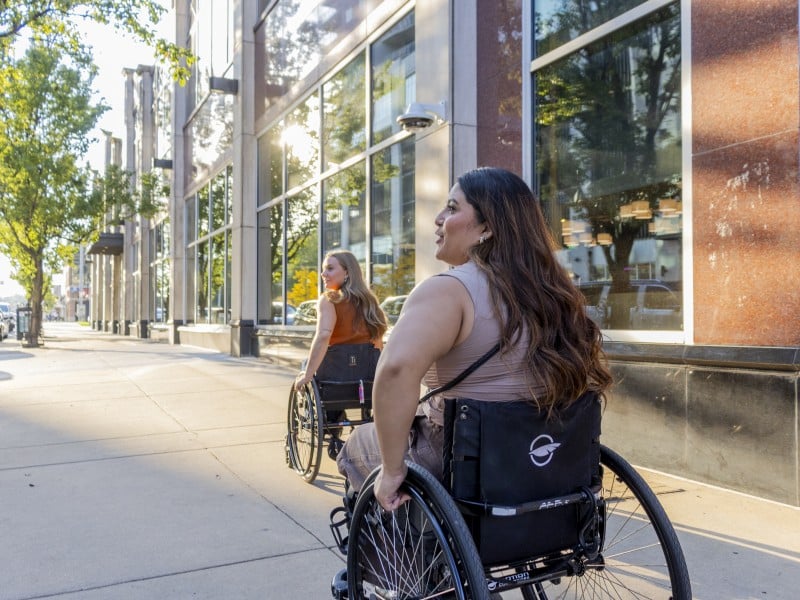
Voices of Youth: Ten things teens should know about voting
Even though the 2024 presidential election has come and gone, many youths will turn 18 in the coming year and be eligible to vote. Voices of Youth's Anas Elkafrawy has identified 10 important things to know before teens cast their first vote.
Editor’s Note: This story was reported by Anas Elkafrawy and the accompanying artwork and photos were created by Isabelle McMillan as part of the Fall 2024 Kalamazoo Voices of Youth Program. The program is a collaboration between Southwest Michigan Second Wave and KYD Network in partnership with the YMCA of Greater Kalamazoo, funded by the Stryker Johnston Foundation. The Voices of Youth Program is led by Earlene McMichael. VOY mentors were Maya James (writing) and Casey Grooten (art).
KALAMAZOO, MI — Kalamazoo Central High School Senior Regina Kibezi plans to vote as soon as she hits the age to qualify. “I plan on voting because, like, voting is just like a big part of turning 18,” Kibezi says. She knows there are ways to get registered at schools and nonprofits, but she says she is uncertain about exactly how or where to put in a vote. The only voting information she is aware of is that to vote, one must be 18 years old by Election Day.
Similarly, Loy Norrix freshman Sophia Baldwin can’t wait to reach the age to vote. “I think that it’s important to vote,” she says. Baldwin is unaware of the requirements, however, does know that some elementary schools serve as polling locations.
But there is more to the voting process than just being of age.
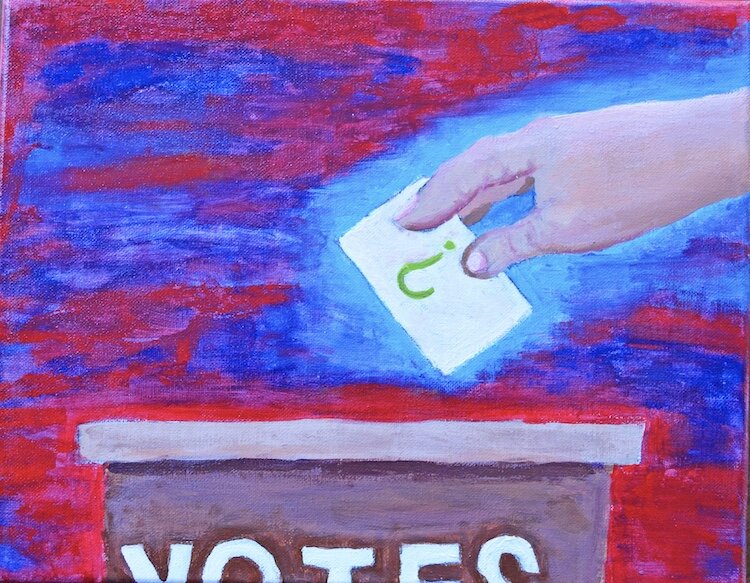
Here are 10 essential things every teen should know about how the voting process works for when the time comes to vote. Many of the tips are from VOTE411.org, a comprehensive and nonpartisan online resource for election-related information created by the League of Women Voters Education Fund.
Age requirement
According to the United States Constitution, you must be 18 years old or older by Election Day to be eligible to vote. “The right of citizens of the United States, who are 18 years of age or older, to vote shall not be denied or abridged by the United States or by any state on account of age.” If you are not the qualifying age now but will be by Election Day, some high schools register students to vote. The voting age used to be 21. According to the White House, it was lowered to 18 in 1971 since those in the upper teens were fulfilling their responsibilities of citizenship, such as serving in the Armed Forces and paying taxes, except in one way, not being able to vote.
Citizenship requirement
According to the Michigan Department of State, federal law requires you to be a U.S. citizen to be eligible to vote. The name of everyone who registers or votes in an election is public record, so it wouldn’t be an issue to see if noncitizens were illegally voting in large numbers.
Impact of felony vs. misdemeanor convictions
According to the National Conference of State Legislatures (NCSL), being imprisoned for a felony — a crime punishable by imprisonment for one year or more –—dismisses your right to vote in some states temporarily. Some states prevent felons from voting indefinitely for some crimes while some allow felons to vote. However, if you are charged with a misdemeanor — a crime punishable by imprisonment for one year or less – your voting rights are upheld. In the State of Michigan, one’s voting rights are restored upon release from prison.
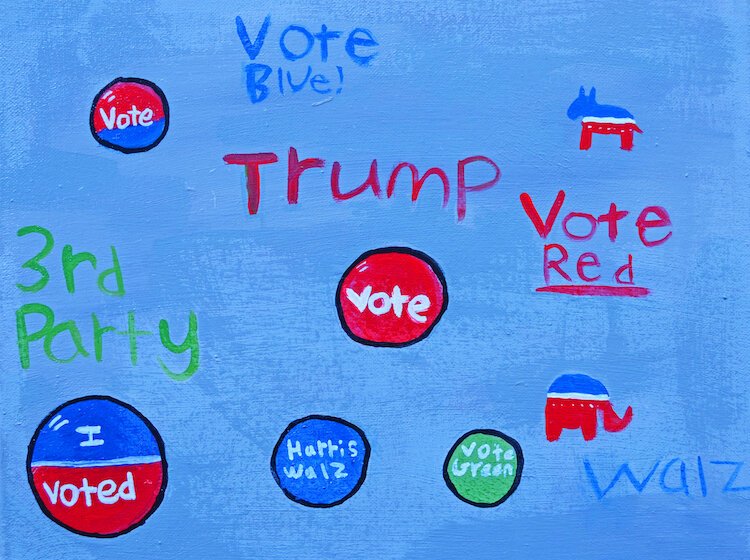
Residency requirement
According to Vote411.org, to be eligible to vote, you must have lived in the city or township you registered in for at least 30 days before the election. According to the Federal Voting Assistance Program (FVAP), your state of legal residence is used for state income tax purposes and determination of eligibility to vote for federal and state elections. Your state of legal residency is not automatically changed when you relocate to a different state, so be sure to update your voting residence.
Photo ID requirement
Another essential requirement of voting is to verify your identity. You must show photo identification to receive your ballot. Acceptable forms of identification include a driver’s license, ID, passport, Tribal ID card, concealed pistol license, employee ID badges issued by a local government, military ID, and student ID. But should you arrive at the polls without a photo identification, Michigan law allows you to still vote if you sign an affidavit attesting that you do not have your I.D.

Address verification
Another step of the verification process includes requiring the address you provide to match the one on your driver’s license or ID. According to the Federal Voting Assistance Program (FVAP), the reason for having your address verified is to determine which offices and candidates you are eligible to vote for. Further on, another reason for ensuring your address is correct is to so you will be sent the appropriate ballot for your voting precinct.
Note: Michigan has allowances for those without a home. You may register to vote using a street corner, shelter, park,cor any other place you stay as your address, according to the Michigan Secretary of State. The address can also be a local shelter, outreach center, advocacy organization, or an individual who will accept mail for you.
Voting options
If you are unable to submit an in-person ballot, Michigan offers a no-excuse option to apply for an absentee ballot. According to usa.gov, some states require an excuse to vote absentee while others do not. Additionally, some states offer a sign-up to qualify to receive absentee ballots for every election.
Deadline for voting
The deadline for voting is on Election Day, no later than 8 p.m. According to the Michigan Department of State, in the case of an absent voter ballot, you can request an emergency absentee ballot and must have it submitted no later than 4 p.m. Emergency ballots can be delivered in person through a deputy or election assistant. In Michigan, you also have the right to be able to register to vote up to 8 p.m. on Election Day. Go to your city or township clerk’s office. You can vote during your visit. Click here for what documentation to bring.
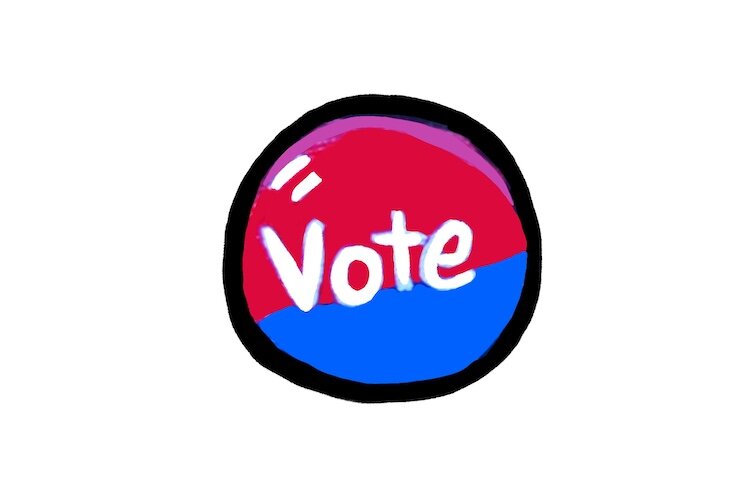
Tracking mail-in ballots
If one is worried about whether or not their mail-in ballot will be counted or not, you can track your ballot online on the Michigan Voter Information Center-(MVIC) website. You can also sign up to receive email, text message, or both for updates on your ballot at Michigan.gov/Vote.
Signature matching
According to the National Conference of State Legislatures (NCSL), election offices go through a process of examining every signature and comparing it to other documents, such as voter registration records.
These guidelines are important for any voter but can be especially helpful for teens during their first elections. No need to wait until you’re 18 to research the process. Get ready now, so you understand how everything works and your rights. Your voice matters! To learn more, you can find unbiased voter info on Vote411.org.

Anas Elkafrawy
Anas Elkafrawy is a junior at Kalamazoo Central High School in Kalamazoo, Michigan. He writes because it is interesting to him. He also likes it because he can express himself through words. Elkafrawy likes to take walks and hang out with friends.

Isabelle McMillan
Isabelle McMillan is a Freshman at Schoolcraft High School. She enjoys drawing, reading, and spending time with her friends.
Artist Statement:
I have always enjoyed working with paint to create my artwork. I find the process of painting to be both challenging and rewarding. My focus area is the youth standpoint on voting and elections. I believe this piece effectively represents the message of my topic, drawing a connection between the artistic process and the subject matter.

